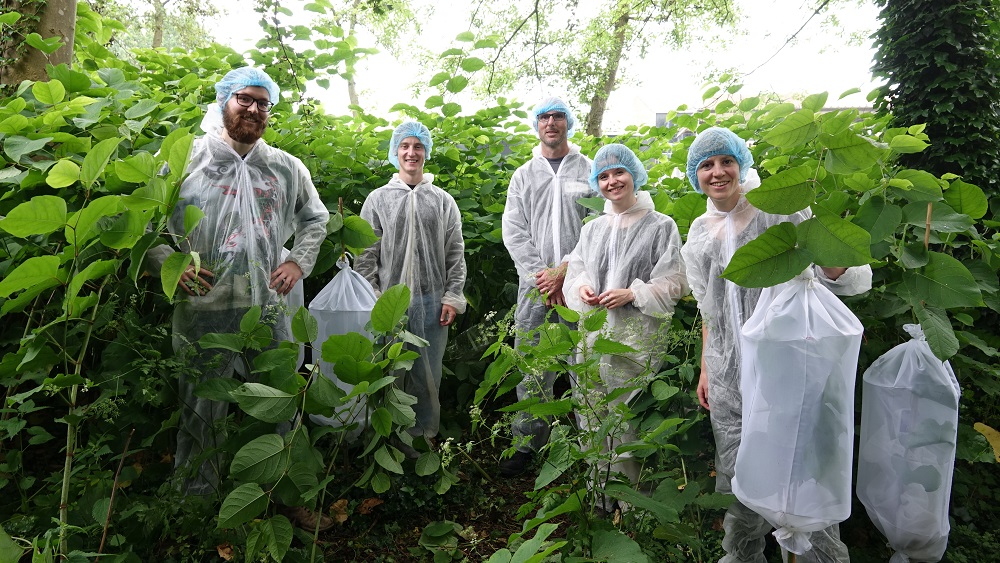
Research to find a suitable and safe biological control to fight the scourge of Japanese knotweed is stepping up a gear in the Netherlands after the second release of a psyllid – Aphalara itadori – and our very own Dr Janny Vos, Partnerships Development Director, was on hand with camera for this picture special.
Dr Vos, who worked on integrated crop management in many countries, met colleagues from Koppert Biological Systems and Leiden University – including three student interns – in the small town of Zeist and an area blighted by Japanese knotweed.
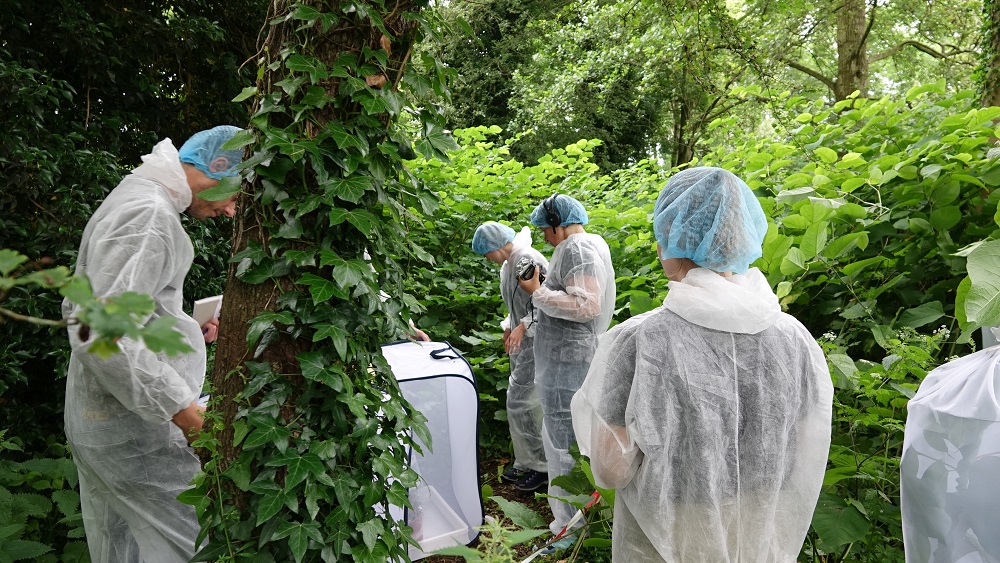
CABI is collaborating with partners and landowners to see if the tiny psyllid can survive the Dutch climatic conditions before a decision can be made to release the biological control at more sites in the Netherlands.
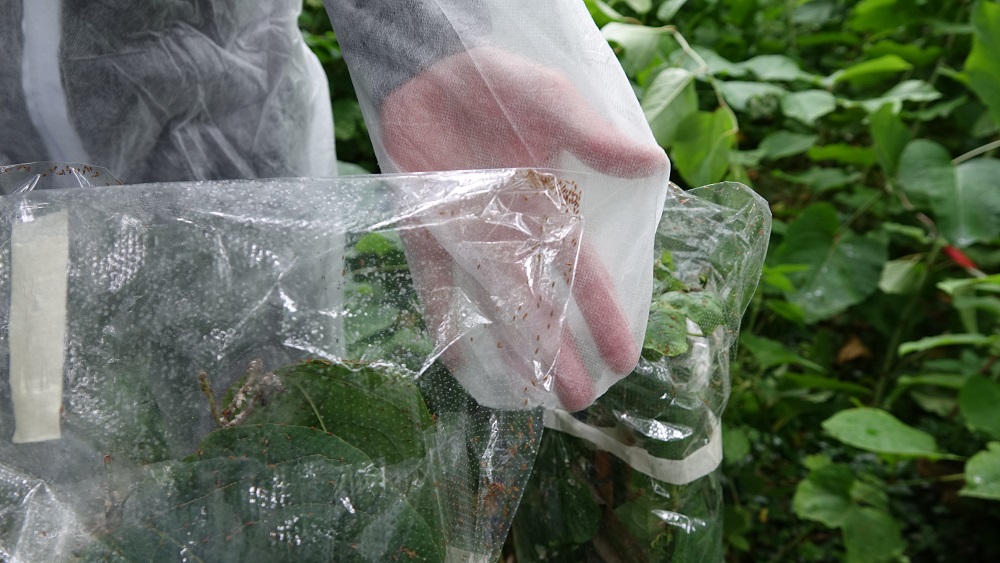
Japanese knotweed is one of the most damaging invasive weeds in the UK, Europe and North America. Growing up to a metre a month, it is a problem to the built environment including roads, railways, dikes and dams, whilst also out-competing native vegetation in forests and other natural environments.
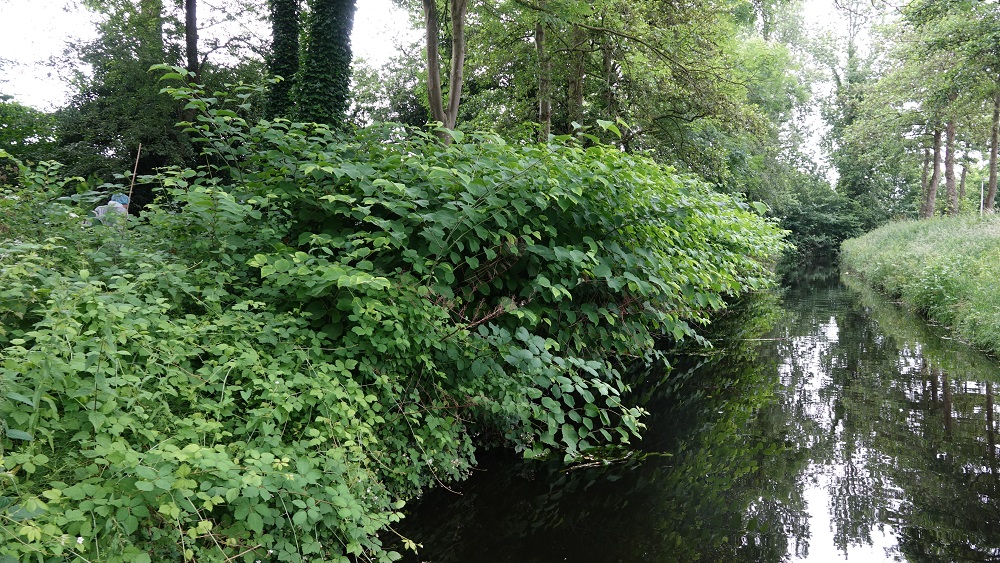
Introduced from Asia to Europe in the mid-19th century as a desirable ornamental plant, it soon fell from grace. It aggressively invades the wild and competes with other native biodiversity. Japanese knotweed also creates serious problems for homeowners, taking thousands of pounds off the value of infested properties.

After seven years of research in Japan and in designated quarantine facilities by CABI in the UK, it has been established that this tiny, sap-sucking insect is an exotic knotweed specialist and can only complete its life cycle on Japanese knotweed. The risk of damage to European native plant species has been shown to be negligible.
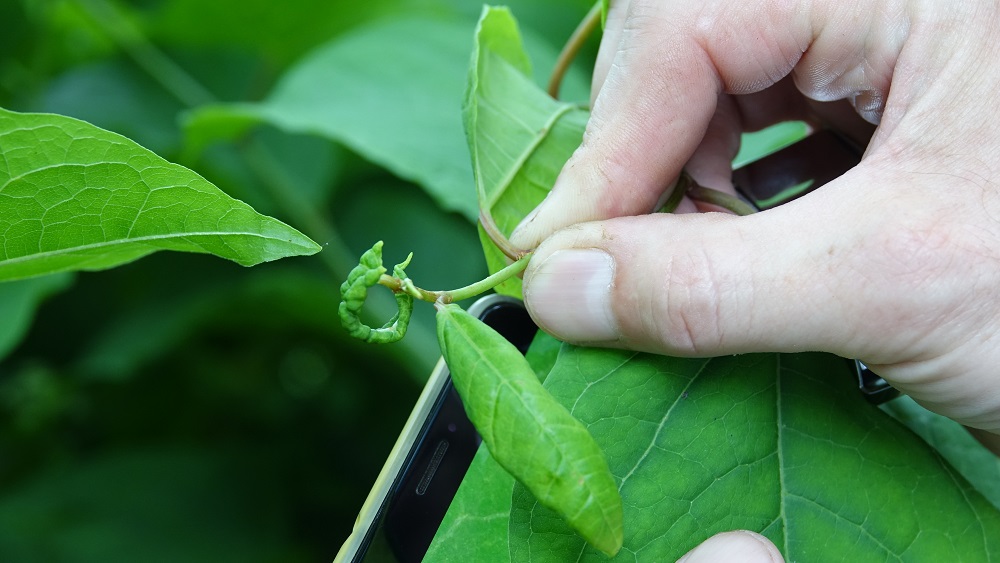
CABI has been working on releases of the Kyushu psyllid line in field trials at a number of sites in England and Wales where Japanese knotweed is also a problem since 2010. In the UK, the CABI team found the psyllids reproduced and survived over winter on Japanese knotweed at several release sites. However, long-term establishment and persistent overwintering have proved challenging.
To tackle these issues, the CABI team conducted a survey further north in Japan in 2019 to collect better climatically-matched psyllid cultures. Extensive and severe leaf curling damage, attributed to psyllids, was found Murakami in the Niigata Prefecture (Murakami line).
Host-specificity testing showed that the Murakami line is specific to Japanese knotweed species and very similar to the Kyushu line. An approval to release the Murakami line in the NL and the UK was granted in 2020 and 2021, respectively. In the UK, releases of the Murakami line are planned at local sites near CABI in this year.
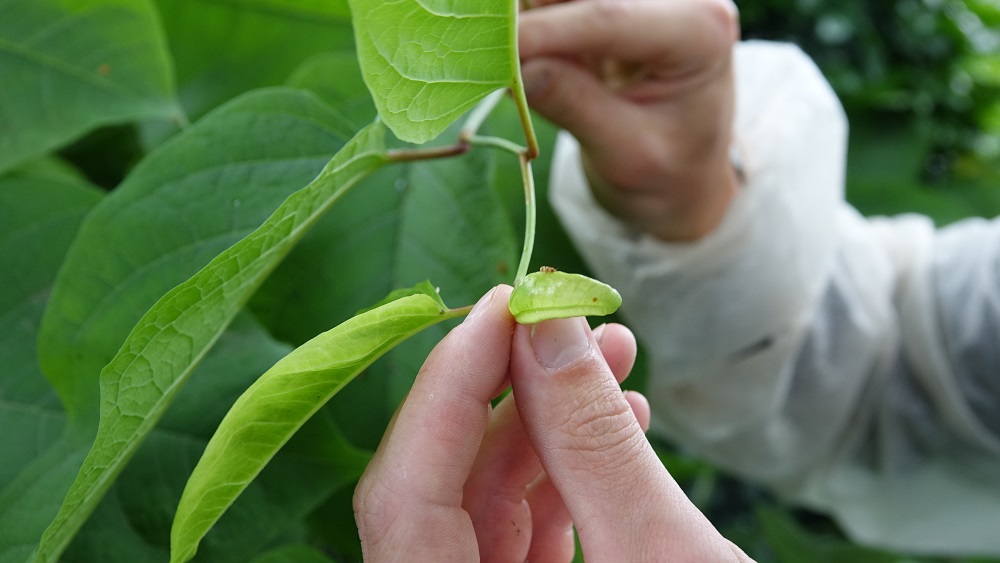
In the Netherlands, Dr Vos said the Dutch project team had found evidence of the Aphalara itadori psyllid (Murakami line) having survived the earlier release – first made in the autumn – and curling damage to Japanese knotweed leaves caused by them. Although it’s too early to predict whether effective control will be seen any time soon, she says this indicates the possibility that the biological control could establish itself under the prevailing conditions in the Netherlands.
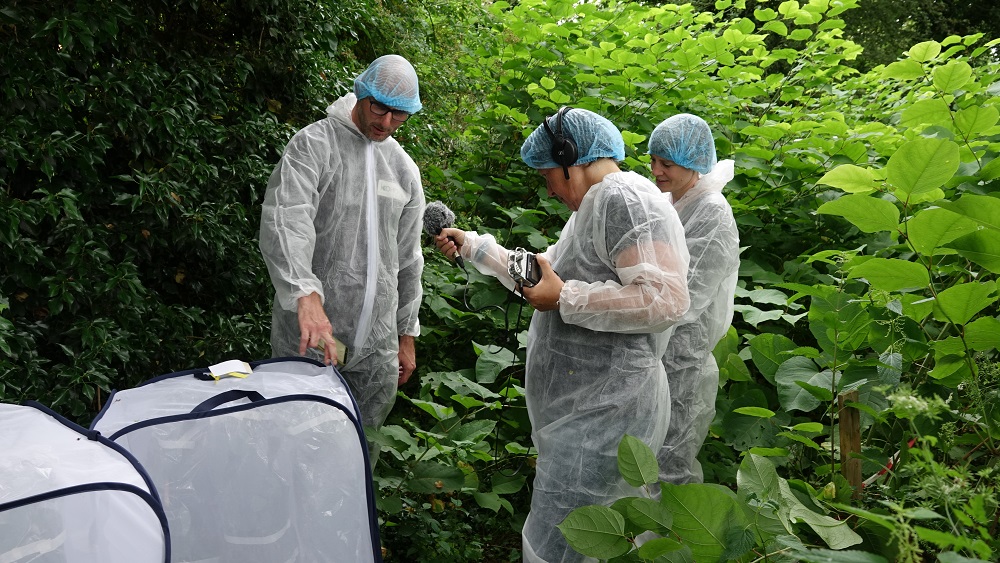
The research also attracted the attention of a radio journalist from Dutch public broadcaster BNN-VARA Vroege Vogels (“early birds”) who interviewed project partners during the release exercise. You can listen to the interview ‘Exotic knotweed: Fight or Accept?’ (in Dutch) here.
Find out more about this project on the Dutch consortium website (in Dutch): https://bestrijdingduizendknoop.nl/overige-onderzoeken/biologische-bestrijding/
Additional information
Photos: All photos are credit Dr Janny Vos – CABI.
Find out more about CABI’s work ‘Establishing the psyllid: field studies for the biological control of Japanese knotweed’ from the project page.
2 Comments
Leave a Reply
Related News & Blogs
CABI-published book sheds new light on plant invasions
Prosopis juliflora – native to Mexico, South America and the Caribbean – is invasive in many parts of the world. As with all alien plant species, the performance of Prosopis as an invader has benefitted from diverse biotic interactions. Its seeds are e…
8 December 2020


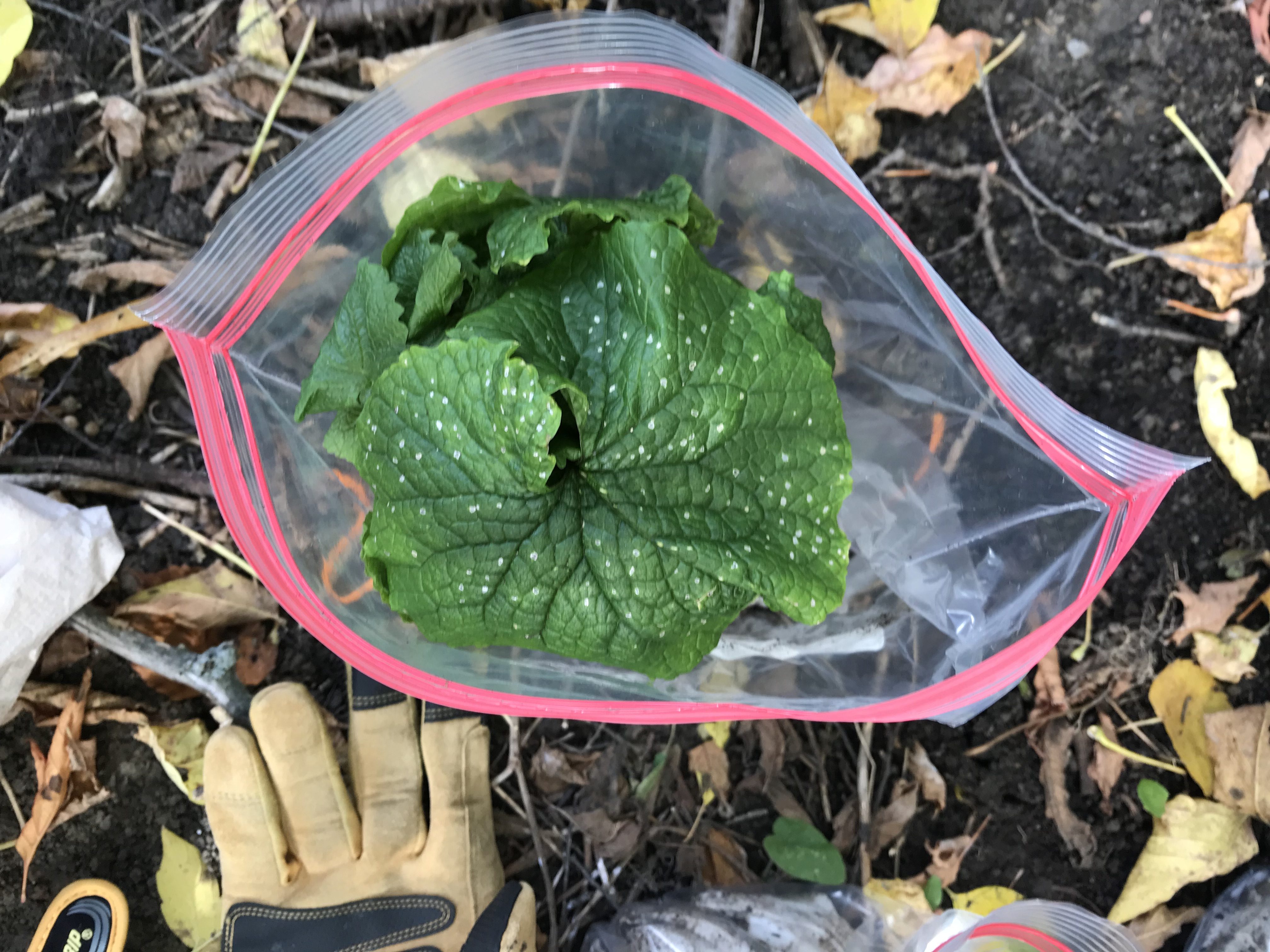

Is there an update from 2021 please?
Hi Jo, you can check our weed biocontrol project progress reports in this link:
https://www.cabi.org/invasivespecies/species/japanese-knotweed/. There is an update on the Murakami line in this report: https://www.cabi.org/wp-content/uploads/CABI-weed-biocontrol-Public-Summary_March-2024.pdf